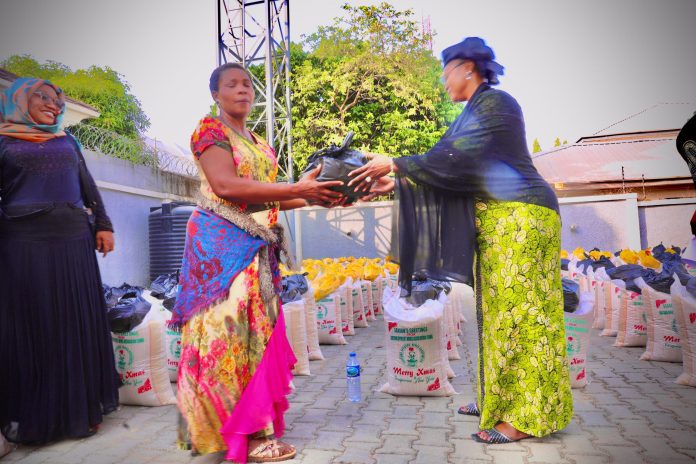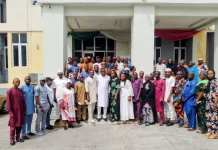The streets of Nigeria echo with the warmth of giving this Christmas, as a wave of kindness sweeps through communities battered by the harsh realities of an economy in turmoil. Amid inflation and widespread uncertainty, individuals and organisations are stepping forward, proving that even in adversity, humanity can shine brightest.
For many Nigerians, 2024 has been marked by profound economic challenges. With food prices doubling in some regions and families struggling to make ends meet, the festive season could have been bleak. Yet, amidst this hardship, countless acts of charity are bringing light to lives weighed down by the year’s struggles.
Take, for instance, the story of Mama Blessing, a petty trader in Enugu who received a food hamper through a community outreach programme. “I didn’t know how I would feed my children this Christmas,” she said, her voice trembling with emotion. “Now, I feel like someone cares about us.”
Leading the charge in organised charity is the Customs Officers’ Wives Association (COWA), headed by Mrs Kikelomo Adeniyi, wife of the Comptroller-General of Customs. The association distributed food items to over 300 women, wives, and widows of Customs officers in Abuja.
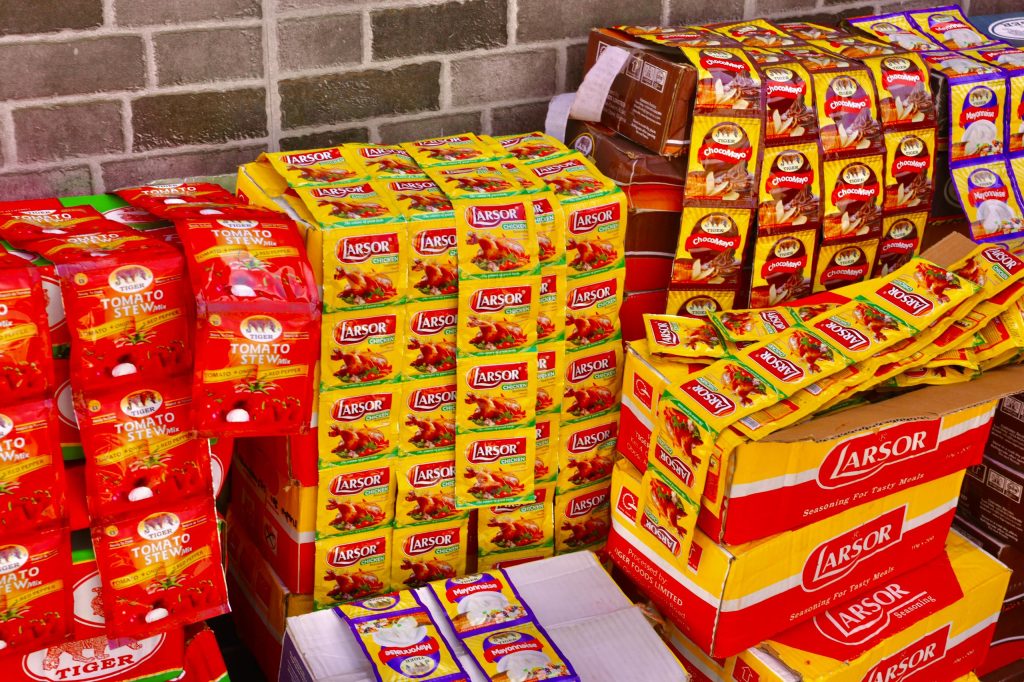
Similarly, the Dangote Foundation extended its Christmas food drive, distributing essentials like rice and oil to more than 20,000 households in underserved northern communities. These efforts, while significant, mirror the larger commitment of corporate Nigeria to uplift struggling families.
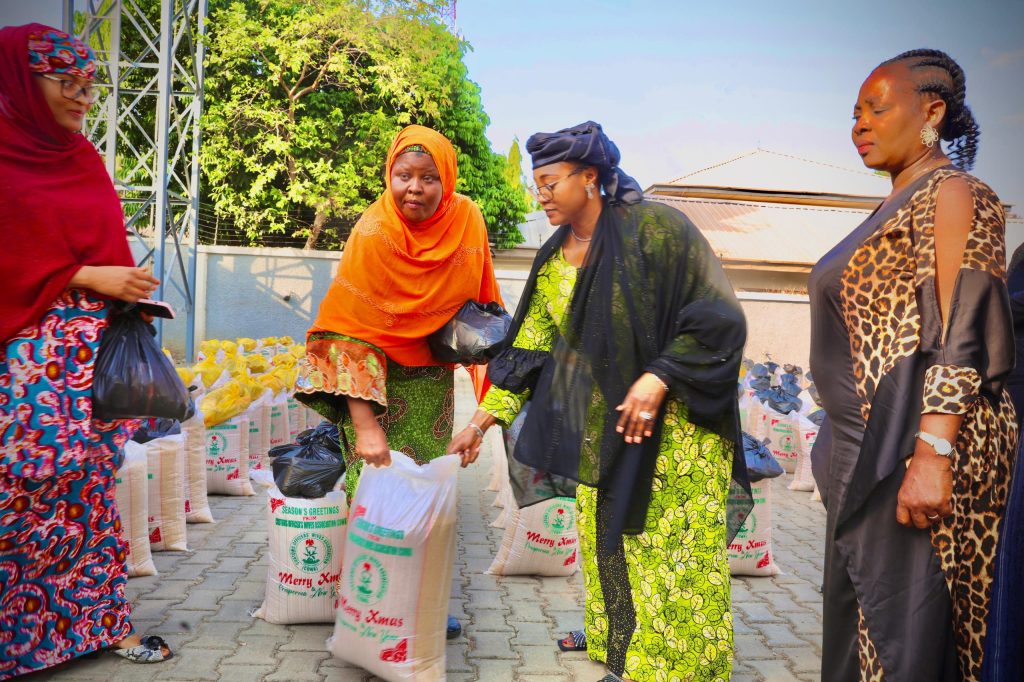
Religious organisations also continue to play a vital role in alleviating suffering during the festive season. The Redeemed Christian Church of God (RCCG) launched its “Love in Action” programme, offering free meals, clothing, and medical outreach to thousands across Nigeria.
On the other hand, Jaiz Charity Foundation, an Islamic philanthropic group, reached across religious divides by extending support to Christian communities in Kaduna. This interfaith collaboration underscores how charity can foster unity in a country often split along religious lines.
Grassroots movements have also been pivotal. Market women in Kano pooled resources to provide school supplies for children, while a youth group in Delta State distributed blankets and food to homeless people. These small acts of kindness ripple through society, inspiring others to join the cause.
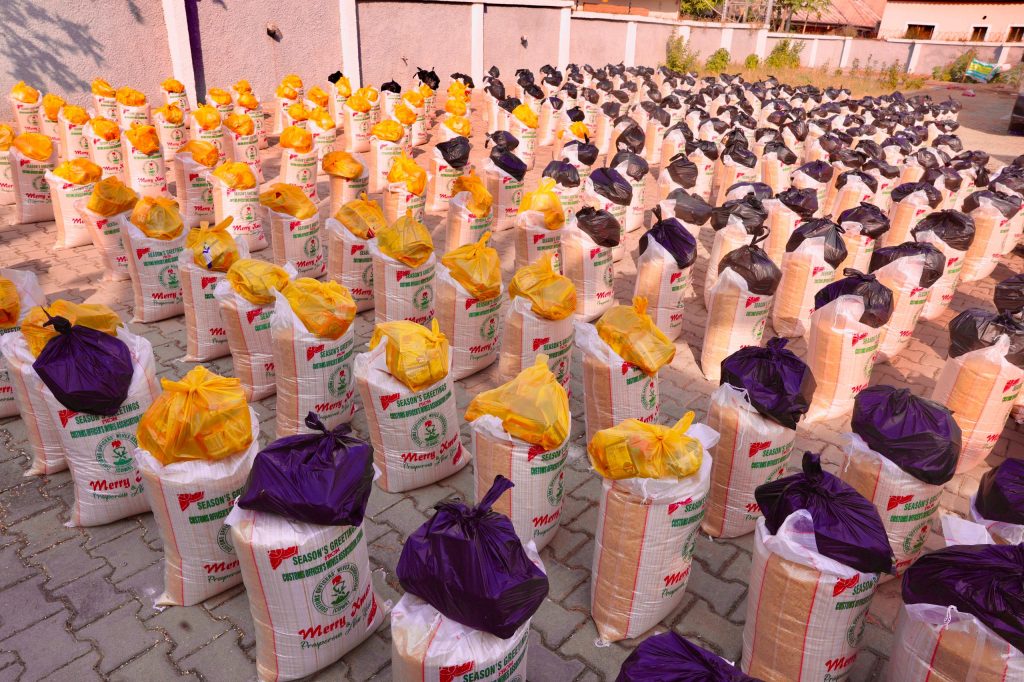
Data from the Charity Aid Foundation reveals a striking growth in charitable activities. In 2023, 35% of Nigerians participated in holiday giving. By 2024, this figure climbed to 40%, reflecting a growing awareness of societal needs despite the country’s economic strain. These acts of generosity have impacted millions, with an estimated 4.2 million households receiving support during the festive season.
The cumulative effect of these efforts is evident in communities across Nigeria. From scholarships enabling children to stay in school to food drives feeding thousands, the impact of Christmas charity extends far beyond the season.
As the year ends, these acts of generosity remind us of the resilience and compassion that define Nigeria. In a season clouded by economic hardship, the enduring spirit of giving ensures that Christmas remains a beacon of hope, love, and humanity.









